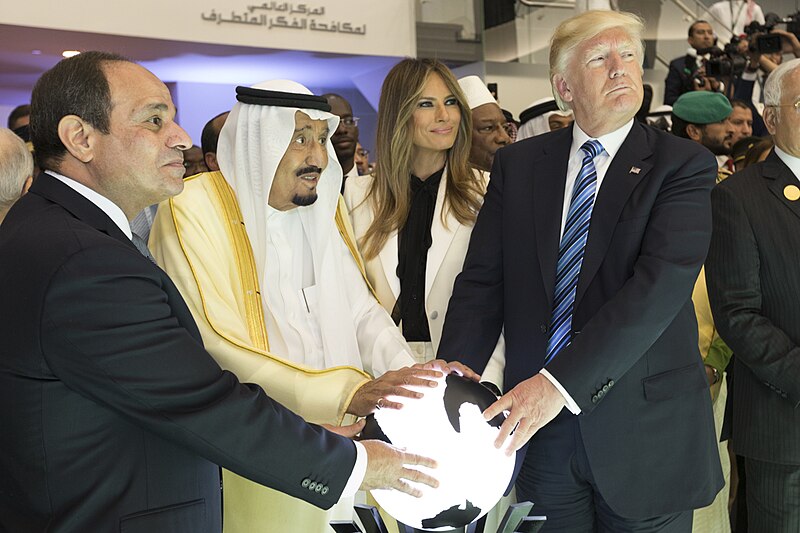
The President of the United Arab Emirates held a meeting with former U.S. President Donald Trump during his official visit to the United States, signaling ongoing ties between key figures in global politics. The discussions, described as cordial and wide-ranging, took place amidst broader diplomatic efforts aimed at strengthening economic and political cooperation between the two nations.
The meeting, which took place in New York, marks a notable interaction between the two leaders, both of whom have played influential roles in shaping regional and international policies. It came as part of the UAE President’s broader agenda in the United States, which included high-level talks with American government officials, business leaders, and policymakers.
While details of the conversation remain largely confidential, sources close to the matter indicated that the discussions touched on several key areas of mutual interest, including trade, defense cooperation, and the ongoing geopolitical dynamics in the Middle East. Trump’s longstanding ties with the Gulf region, bolstered by his tenure in the White House, made him a valuable interlocutor on topics of regional security and economic development.
Observers noted that the UAE’s focus on enhancing its global stature through diplomatic and strategic partnerships was evident in the timing and scope of the visit. This meeting with Trump is seen as part of the UAE’s broader effort to maintain and expand its influence in key global markets and political arenas, with the U.S. being one of its most critical partners.
Trump’s business dealings and personal connections in the Gulf have also provided a unique channel for dialogue between the former U.S. administration and leaders in the Middle East. During his presidency, Trump fostered close relationships with Gulf leaders, prioritizing economic partnerships and arms sales while downplaying traditional concerns about human rights and democratic governance. This approach resonated with leaders in the region, including the UAE, who sought to leverage their relationship with Washington to achieve both economic gains and strategic security objectives.
On the economic front, the UAE has continued to assert itself as a leading player in the global energy sector, technology innovation, and financial services. Its investments in U.S. infrastructure and tech firms have cemented its role as an important partner in America’s economic landscape. Trump’s experience in business, combined with his administration’s Middle East policies, has contributed to the UAE’s ability to navigate the complexities of the U.S. political system, even after his presidency ended.
While Trump’s current political standing remains a subject of considerable debate within the United States, his influence on U.S. foreign policy, particularly in the Middle East, continues to be felt. The UAE President’s decision to meet with Trump, alongside other U.S. political and business figures, underscores the pragmatic approach Gulf leaders often take in cultivating relationships across the political spectrum in Washington.
The meeting also highlights the continued significance of the Abraham Accords, the diplomatic agreements brokered by the Trump administration that normalized relations between Israel and several Arab countries, including the UAE. These accords have reshaped the geopolitical landscape of the Middle East and remain a cornerstone of regional diplomacy. Analysts believe the topic likely featured in the conversation between the UAE President and Trump, given its long-term implications for peace and stability in the region.
The ongoing war in Ukraine and its economic ripple effects on global energy markets were likely a focal point of discussion. The UAE, as a major oil producer, has had to navigate the challenges posed by fluctuating energy prices and the shifting dynamics of global energy supply chains. Trump’s expertise in energy policy and the U.S.’s own energy production capabilities may have provided the basis for a fruitful exchange of ideas on how both nations could better manage their respective roles in this evolving market.
Security cooperation between the UAE and the U.S. remains another vital component of the bilateral relationship, especially in light of regional instability stemming from conflicts in Yemen, Syria, and Iran’s growing influence in the region. Trump’s administration was marked by strong backing for the UAE’s security concerns, including substantial arms deals that bolstered the Gulf nation’s defense capabilities. Even after leaving office, Trump’s views on Middle East security issues continue to shape conversations in U.S. foreign policy circles, further elevating the significance of the meeting.
This visit by the UAE President to the U.S., culminating in the discussion with Trump, signals the country’s intention to maintain robust ties with influential American political figures, regardless of party affiliations. As the UAE continues to pursue its vision of economic diversification and regional leadership, relationships such as these offer avenues for securing its strategic interests on the global stage.



